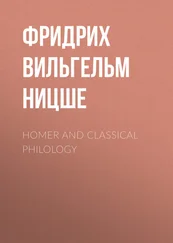Фридрих Ницше - Beyond Good and Evil
Здесь есть возможность читать онлайн «Фридрих Ницше - Beyond Good and Evil» весь текст электронной книги совершенно бесплатно (целиком полную версию без сокращений). В некоторых случаях можно слушать аудио, скачать через торрент в формате fb2 и присутствует краткое содержание. Год выпуска: 2014, Издательство: epubBooks Classics, Жанр: Философия, на английском языке. Описание произведения, (предисловие) а так же отзывы посетителей доступны на портале библиотеки ЛибКат.
- Название:Beyond Good and Evil
- Автор:
- Издательство:epubBooks Classics
- Жанр:
- Год:2014
- ISBN:нет данных
- Рейтинг книги:4 / 5. Голосов: 1
-
Избранное:Добавить в избранное
- Отзывы:
-
Ваша оценка:
- 80
- 1
- 2
- 3
- 4
- 5
Beyond Good and Evil: краткое содержание, описание и аннотация
Предлагаем к чтению аннотацию, описание, краткое содержание или предисловие (зависит от того, что написал сам автор книги «Beyond Good and Evil»). Если вы не нашли необходимую информацию о книге — напишите в комментариях, мы постараемся отыскать её.
Beyond Good and Evil — читать онлайн бесплатно полную книгу (весь текст) целиком
Ниже представлен текст книги, разбитый по страницам. Система сохранения места последней прочитанной страницы, позволяет с удобством читать онлайн бесплатно книгу «Beyond Good and Evil», без необходимости каждый раз заново искать на чём Вы остановились. Поставьте закладку, и сможете в любой момент перейти на страницу, на которой закончили чтение.
Интервал:
Закладка:
13. Psychologists should bethink themselves before putting down the instinct of self–preservation as the cardinal instinct of an organic being. A living thing seeks above all to DISCHARGE its strength—life itself is WILL TO POWER; self–preservation is only one of the indirect and most frequent RESULTS thereof. In short, here, as everywhere else, let us beware of SUPERFLUOUS teleological principles!—one of which is the instinct of self–preservation (we owe it to Spinoza's inconsistency). It is thus, in effect, that method ordains, which must be essentially economy of principles.
14. It is perhaps just dawning on five or six minds that natural philosophy is only a world–exposition and world–arrangement (according to us, if I may say so!) and NOT a world–explanation; but in so far as it is based on belief in the senses, it is regarded as more, and for a long time to come must be regarded as more—namely, as an explanation. It has eyes and fingers of its own, it has ocular evidence and palpableness of its own: this operates fascinatingly, persuasively, and CONVINCINGLY upon an age with fundamentally plebeian tastes—in fact, it follows instinctively the canon of truth of eternal popular sensualism. What is clear, what is "explained"? Only that which can be seen and felt—one must pursue every problem thus far. Obversely, however, the charm of the Platonic mode of thought, which was an ARISTOCRATIC mode, consisted precisely in RESISTANCE to obvious sense–evidence—perhaps among men who enjoyed even stronger and more fastidious senses than our contemporaries, but who knew how to find a higher triumph in remaining masters of them: and this by means of pale, cold, grey conceptional networks which they threw over the motley whirl of the senses—the mob of the senses, as Plato said. In this overcoming of the world, and interpreting of the world in the manner of Plato, there was an ENJOYMENT different from that which the physicists of today offer us—and likewise the Darwinists and anti–teleologists among the physiological workers, with their principle of the "smallest possible effort," and the greatest possible blunder. "Where there is nothing more to see or to grasp, there is also nothing more for men to do"—that is certainly an imperative different from the Platonic one, but it may notwithstanding be the right imperative for a hardy, laborious race of machinists and bridge–builders of the future, who have nothing but ROUGH work to perform.
15. To study physiology with a clear conscience, one must insist on the fact that the sense–organs are not phenomena in the sense of the idealistic philosophy; as such they certainly could not be causes! Sensualism, therefore, at least as regulative hypothesis, if not as heuristic principle. What? And others say even that the external world is the work of our organs? But then our body, as a part of this external world, would be the work of our organs! But then our organs themselves would be the work of our organs! It seems to me that this is a complete REDUCTIO AD ABSURDUM, if the conception CAUSA SUI is something fundamentally absurd. Consequently, the external world is NOT the work of our organs—?
16. There are still harmless self–observers who believe that there are "immediate certainties"; for instance, "I think," or as the superstition of Schopenhauer puts it, "I will"; as though cognition here got hold of its object purely and simply as "the thing in itself," without any falsification taking place either on the part of the subject or the object. I would repeat it, however, a hundred times, that "immediate certainty," as well as "absolute knowledge" and the "thing in itself," involve a CONTRADICTIO IN ADJECTO; we really ought to free ourselves from the misleading significance of words! The people on their part may think that cognition is knowing all about things, but the philosopher must say to himself: "When I analyze the process that is expressed in the sentence, 'I think,' I find a whole series of daring assertions, the argumentative proof of which would be difficult, perhaps impossible: for instance, that it is I who think, that there must necessarily be something that thinks, that thinking is an activity and operation on the part of a being who is thought of as a cause, that there is an 'ego,' and finally, that it is already determined what is to be designated by thinking—that I KNOW what thinking is. For if I had not already decided within myself what it is, by what standard could I determine whether that which is just happening is not perhaps 'willing' or 'feeling'? In short, the assertion 'I think,' assumes that I COMPARE my state at the present moment with other states of myself which I know, in order to determine what it is; on account of this retrospective connection with further 'knowledge,' it has, at any rate, no immediate certainty for me."—In place of the "immediate certainty" in which the people may believe in the special case, the philosopher thus finds a series of metaphysical questions presented to him, veritable conscience questions of the intellect, to wit: "Whence did I get the notion of 'thinking'? Why do I believe in cause and effect? What gives me the right to speak of an 'ego,' and even of an 'ego' as cause, and finally of an 'ego' as cause of thought?" He who ventures to answer these metaphysical questions at once by an appeal to a sort of INTUITIVE perception, like the person who says, "I think, and know that this, at least, is true, actual, and certain"—will encounter a smile and two notes of interrogation in a philosopher nowadays. "Sir," the philosopher will perhaps give him to understand, "it is improbable that you are not mistaken, but why should it be the truth?"
17. With regard to the superstitions of logicians, I shall never tire of emphasizing a small, terse fact, which is unwillingly recognized by these credulous minds—namely, that a thought comes when "it" wishes, and not when "I" wish; so that it is a PERVERSION of the facts of the case to say that the subject "I" is the condition of the predicate "think." ONE thinks; but that this "one" is precisely the famous old "ego," is, to put it mildly, only a supposition, an assertion, and assuredly not an "immediate certainty." After all, one has even gone too far with this "one thinks"—even the "one" contains an INTERPRETATION of the process, and does not belong to the process itself. One infers here according to the usual grammatical formula—"To think is an activity; every activity requires an agency that is active; consequently"…It was pretty much on the same lines that the older atomism sought, besides the operating "power," the material particle wherein it resides and out of which it operates—the atom. More rigorous minds, however, learnt at last to get along without this "earth–residuum," and perhaps some day we shall accustom ourselves, even from the logician's point of view, to get along without the little "one" (to which the worthy old "ego" has refined itself).
18. It is certainly not the least charm of a theory that it is refutable; it is precisely thereby that it attracts the more subtle minds. It seems that the hundred–times–refuted theory of the "free will" owes its persistence to this charm alone; some one is always appearing who feels himself strong enough to refute it.
19. Philosophers are accustomed to speak of the will as though it were the best–known thing in the world; indeed, Schopenhauer has given us to understand that the will alone is really known to us, absolutely and completely known, without deduction or addition. But it again and again seems to me that in this case Schopenhauer also only did what philosophers are in the habit of doing—he seems to have adopted a POPULAR PREJUDICE and exaggerated it. Willing seems to me to be above all something COMPLICATED, something that is a unity only in name—and it is precisely in a name that popular prejudice lurks, which has got the mastery over the inadequate precautions of philosophers in all ages. So let us for once be more cautious, let us be "unphilosophical": let us say that in all willing there is firstly a plurality of sensations, namely, the sensation of the condition "AWAY FROM WHICH we go," the sensation of the condition "TOWARDS WHICH we go," the sensation of this "FROM" and "TOWARDS" itself, and then besides, an accompanying muscular sensation, which, even without our putting in motion "arms and legs," commences its action by force of habit, directly we "will" anything. Therefore, just as sensations (and indeed many kinds of sensations) are to be recognized as ingredients of the will, so, in the second place, thinking is also to be recognized; in every act of the will there is a ruling thought;—and let us not imagine it possible to sever this thought from the "willing," as if the will would then remain over! In the third place, the will is not only a complex of sensation and thinking, but it is above all an EMOTION, and in fact the emotion of the command. That which is termed "freedom of the will" is essentially the emotion of supremacy in respect to him who must obey: "I am free, 'he' must obey"—this consciousness is inherent in every will; and equally so the straining of the attention, the straight look which fixes itself exclusively on one thing, the unconditional judgment that "this and nothing else is necessary now," the inward certainty that obedience will be rendered—and whatever else pertains to the position of the commander. A man who WILLS commands something within himself which renders obedience, or which he believes renders obedience. But now let us notice what is the strangest thing about the will,—this affair so extremely complex, for which the people have only one name. Inasmuch as in the given circumstances we are at the same time the commanding AND the obeying parties, and as the obeying party we know the sensations of constraint, impulsion, pressure, resistance, and motion, which usually commence immediately after the act of will; inasmuch as, on the other hand, we are accustomed to disregard this duality, and to deceive ourselves about it by means of the synthetic term "I": a whole series of erroneous conclusions, and consequently of false judgments about the will itself, has become attached to the act of willing—to such a degree that he who wills believes firmly that willing SUFFICES for action. Since in the majority of cases there has only been exercise of will when the effect of the command—consequently obedience, and therefore action—was to be EXPECTED, the APPEARANCE has translated itself into the sentiment, as if there were a NECESSITY OF EFFECT; in a word, he who wills believes with a fair amount of certainty that will and action are somehow one; he ascribes the success, the carrying out of the willing, to the will itself, and thereby enjoys an increase of the sensation of power which accompanies all success. "Freedom of Will"—that is the expression for the complex state of delight of the person exercising volition, who commands and at the same time identifies himself with the executor of the order—who, as such, enjoys also the triumph over obstacles, but thinks within himself that it was really his own will that overcame them. In this way the person exercising volition adds the feelings of delight of his successful executive instruments, the useful "underwills" or under–souls—indeed, our body is but a social structure composed of many souls—to his feelings of delight as commander. L'EFFET C'EST MOI. what happens here is what happens in every well–constructed and happy commonwealth, namely, that the governing class identifies itself with the successes of the commonwealth. In all willing it is absolutely a question of commanding and obeying, on the basis, as already said, of a social structure composed of many "souls", on which account a philosopher should claim the right to include willing–as–such within the sphere of morals—regarded as the doctrine of the relations of supremacy under which the phenomenon of "life" manifests itself.
Читать дальшеИнтервал:
Закладка:
Похожие книги на «Beyond Good and Evil»
Представляем Вашему вниманию похожие книги на «Beyond Good and Evil» списком для выбора. Мы отобрали схожую по названию и смыслу литературу в надежде предоставить читателям больше вариантов отыскать новые, интересные, ещё непрочитанные произведения.
Обсуждение, отзывы о книге «Beyond Good and Evil» и просто собственные мнения читателей. Оставьте ваши комментарии, напишите, что Вы думаете о произведении, его смысле или главных героях. Укажите что конкретно понравилось, а что нет, и почему Вы так считаете.












